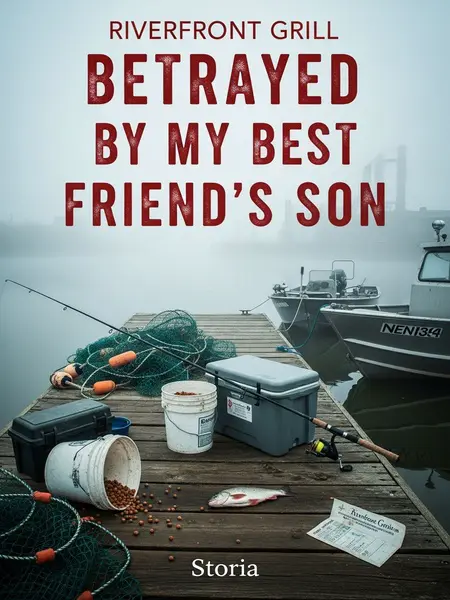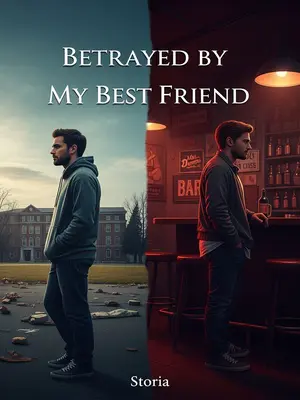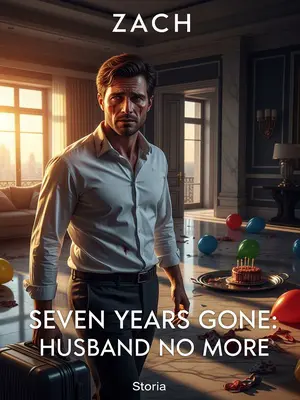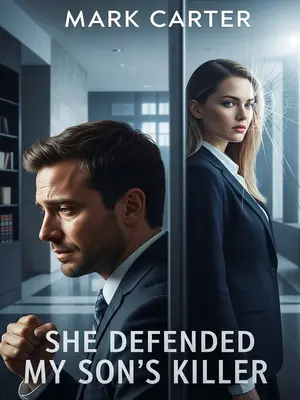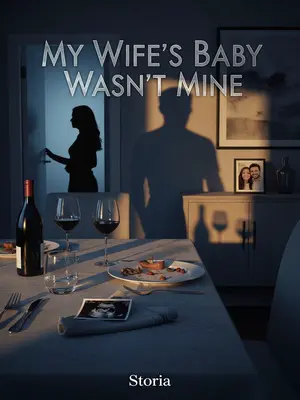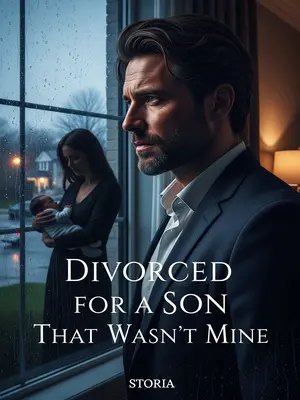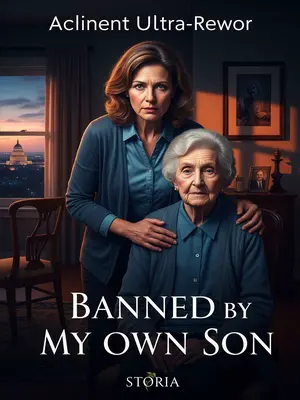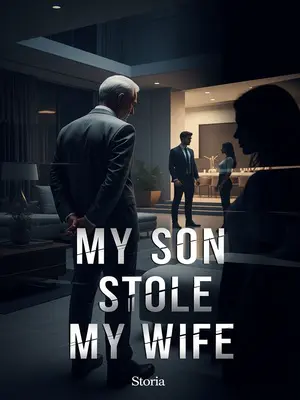Chapter 3: The Price of Loyalty
A surge of anger rose in my chest, and I frowned.
I could feel the heat rising in my cheeks, the kind of old, slow-burning anger that doesn’t just fade away. I clenched my fists, fighting the urge to let loose right there on the loading dock.
“I’ve worked with your dad for years. This price has never happened.”
“You don’t get to decide this, Tyler. Go get your dad. Now.”
“If this is really his decision, I’ll leave without another word.”
I tried to keep things civil, but every word felt heavy, the tension between us sharp enough to cut through steel. This was a line I never thought we’d cross, and I wanted to believe it wasn’t Tom’s idea.
Tyler was just a kid, so I didn’t want to hold it against him.
I took a deep breath, remembering the first time I’d met him—knee-high to a grasshopper, all chubby cheeks and sticky hands, hiding behind his dad’s apron. He didn’t know the first thing about running a restaurant, let alone what it meant to build a relationship in this business.
Besides, my relationship with Tom Caldwell went beyond business.
We were practically family in those early days. He’d show up at the farm with a case of beer, help me patch up the dock, or fix a busted water line, no questions asked. Folks around here took care of each other.
When I first started my fish farm, I had no experience and was tricked into buying a batch of poor fingerlings.
I remembered that first year—the water so clear you could see all the way to the bottom, but not a single fish worth keeping. The supplier had seen me coming a mile away, and I’d paid for my naiveté in dead stock and sleepless nights.
Before the fish even grew to palm size, the whole pond died.
That was a blow that nearly broke me. I stood on the dock, staring at the lifeless water, feeling like every dollar I’d scraped together had just sunk to the bottom.
Back then, Riverfront Grill was just a seafood shack, and Tom Caldwell was a small-time boss with a spatula in hand.
He’d run that place like a family diner—no tablecloths, just Formica counters and a menu scribbled on a chalkboard. But he had heart, and he knew good food when he tasted it.
He spent two hundred bucks to buy my whole pond of dead fingerlings and made them into deep-fried small striped bass.
He didn’t have to help, but he did. Paid cash on the barrelhead, loaded up my dead fish, and spun them into something folks actually lined up to buy. The smell of fryer grease and Cajun spice still brings me back to that moment.
Surprisingly, they tasted great and drew in crowds.
People from all over the county showed up, curious about Tom’s new “crispy bites.” That little act of faith saved both our skins.
From then on, striped bass became his restaurant’s signature dish.
It became a legend—folks would bring out-of-town relatives just to have a taste. I started getting calls from other restaurants, but I always kept Riverfront Grill at the top of my list.
I became his sole supplier.
We shook on it, right there in the parking lot, hands still smelling like fish and fryer oil. No contracts—just trust.
With that two hundred bucks, I pulled myself together, cleaned the pond, and found reliable sources for new fry.
I learned from my mistakes, swearing I’d never get burned like that again. I drove all over the state, asking questions, taking notes, sometimes staying up all night watching over the new fingerlings like a nervous parent.
Later, I worked hard on breeding techniques, studied everywhere, introduced better breeds, and improved water and feed scientifically.
I took college courses online, watched YouTube tutorials late into the night, and even flew out to a conference in Texas to talk to experts. My wife joked that I loved those fish more than my own kids.
Gradually, I became the largest striped bass breeder in the county.
My farm grew from a mud puddle to a dozen ponds, each one humming with the sound of pumps and the promise of profit. People would drive out just to see the place, and I took pride in showing them around.
Only I could raise semi-wild, premium large striped bass over four pounds with delicious meat.
These fish weren’t just big—they were a cut above, raised on the best feed, with just enough wild river water to keep their flavor sharp. Chefs from Atlanta and Charleston started calling, asking about my process.
I was always grateful for Tom Caldwell’s two hundred bucks. I gave him priority, personally selecting the biggest, best-colored fish for him.
Sometimes I’d drive out at dawn, picking the catch myself, double-checking each one before loading up the truck. It was a matter of pride—and gratitude.
Most importantly, I always priced at least 20% lower than for others, and never raised it for years.
No matter how much the market shifted, my word to Tom stood. My wife used to shake her head at my stubborn loyalty, but I never saw it as a loss.
He relied on pan-seared striped bass to win first place at the state chef competition.
I watched him hoist the trophy, his grin wider than the Savannah River. He gave me a nod in front of all those TV cameras, and I felt like I’d won, too.
With that reputation, he opened Riverfront Grill, and business boomed.
Lines wrapped around the block every weekend, and people posted photos of his dishes all over Instagram. The restaurant became a local landmark, and Tom was the king of his little culinary kingdom.
When he held the grand opening, I brought the biggest striped bass as a gift. The two of us took a photo together holding the fish at the restaurant’s entrance.
It was a tradition—me hauling in the best fish, Tom grinning for the camera. That photo hung on the wall for years, a symbol of everything we’d built together.
We each had a copy, enlarged and framed—one in his restaurant’s main hall, the other at my fish farm office.
I’d walk past that picture every morning, a little reminder of how far we’d come from those early days of broken pumps and empty pockets.
I looked up at the restaurant wall.
But the photo was gone, replaced by a picture of him and his son.
Both had bellies so big they were nearly bursting out of the frame.
It was almost comical—the old man and his boy, standing shoulder to shoulder, their pride as obvious as their waistlines. But something about it stung deep.
For a second, I felt like a ghost in my own story, erased with the swipe of a frame.
Tyler took a deep drag of his cigarette, then blew the smoke in my face.
“Come on, Ben, you really gotta make me say it?”
“Old Rick’s striped bass has always been six bucks a pound.”
“All these years, my dad only bought from you. Who knows how much you’ve been overcharging us.”
“If it were up to me, I wouldn’t buy from you at all.”
“But my dad can’t bring himself to cut you off.”
“Today’s fish at five per pound is to teach you a lesson for being dishonest all these years.”
“From tomorrow on, it’ll be six per pound, and I can still give you priority.”
Choked by the smoke, I coughed, my face growing darker.
The words sat heavy in my chest. I could feel my pulse pounding in my ears. If this was how things were going to be from now on, maybe it was time I started thinking about myself instead of loyalty.
Maybe I was the fool for thinking loyalty meant anything once the money got big.
That kid Rick has also been selling striped bass these past years, but all his fish come from my test ponds—fish that died from failed feed experiments.
Rick was a hustler, always looking for a shortcut. He’d been buying my culls on the cheap, spinning tales about how they were just as good as the real thing. I’d let it slide, figuring he wasn’t hurting anyone who knew any better.
To study breeding techniques, I set up test ponds to try different feed formulas on striped bass.
It was all part of the process—trial and error, trying to find the perfect balance. Sometimes it worked. Sometimes it didn’t, and I was left with a pile of dead fish.
Inevitably, some fish died.
There was no way around it. The important thing was, I never let them go to waste. But they sure as hell weren’t good enough for Riverfront Grill.
Such fish are safe to eat, but dead fish can only be made into canned food, and need to be cooked with strong flavors like Cajun spice and chili.
If you pan-sear them, they’ll taste so fishy you can’t swallow them.
Tyler doesn’t understand, but surely Tom Caldwell does.
He’s cooked more fish than Tyler’s ever seen in his life. He knows the difference between fresh and frozen, living and dead. Maybe he just doesn’t care anymore—or maybe he’s letting his son make the mistakes he needs to learn.
